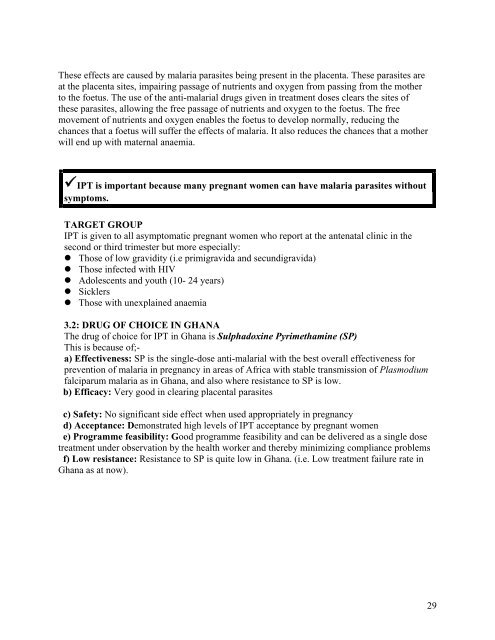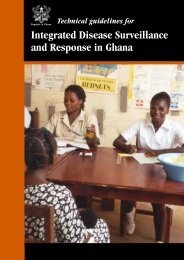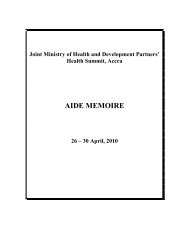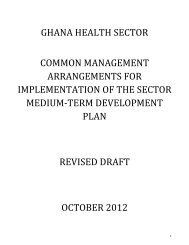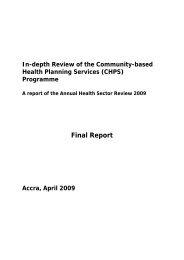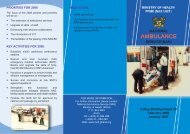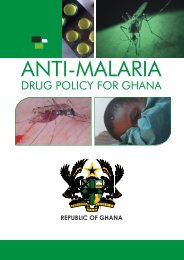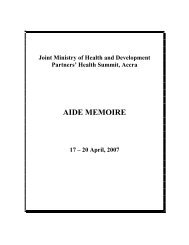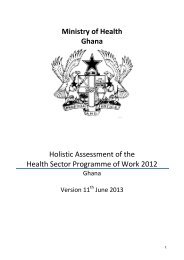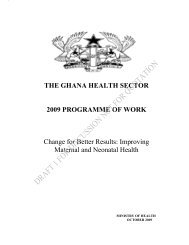Training Manual for Preventive Malaria - Ministry of Health
Training Manual for Preventive Malaria - Ministry of Health
Training Manual for Preventive Malaria - Ministry of Health
Create successful ePaper yourself
Turn your PDF publications into a flip-book with our unique Google optimized e-Paper software.
These effects are caused by malaria parasites being present in the placenta. These parasites are<br />
at the placenta sites, impairing passage <strong>of</strong> nutrients and oxygen from passing from the mother<br />
to the foetus. The use <strong>of</strong> the anti-malarial drugs given in treatment doses clears the sites <strong>of</strong><br />
these parasites, allowing the free passage <strong>of</strong> nutrients and oxygen to the foetus. The free<br />
movement <strong>of</strong> nutrients and oxygen enables the foetus to develop normally, reducing the<br />
chances that a foetus will suffer the effects <strong>of</strong> malaria. It also reduces the chances that a mother<br />
will end up with maternal anaemia.<br />
<br />
IPT is important because many pregnant women can have malaria parasites without<br />
symptoms.<br />
TARGET GROUP<br />
IPT is given to all asymptomatic pregnant women who report at the antenatal clinic in the<br />
second or third trimester but more especially:<br />
• Those <strong>of</strong> low gravidity (i.e primigravida and secundigravida)<br />
• Those infected with HIV<br />
• Adolescents and youth (10- 24 years)<br />
• Sicklers<br />
• Those with unexplained anaemia<br />
3.2: DRUG OF CHOICE IN GHANA<br />
The drug <strong>of</strong> choice <strong>for</strong> IPT in Ghana is Sulphadoxine Pyrimethamine (SP)<br />
This is because <strong>of</strong>;-<br />
a) Effectiveness: SP is the single-dose anti-malarial with the best overall effectiveness <strong>for</strong><br />
prevention <strong>of</strong> malaria in pregnancy in areas <strong>of</strong> Africa with stable transmission <strong>of</strong> Plasmodium<br />
falciparum malaria as in Ghana, and also where resistance to SP is low.<br />
b) Efficacy: Very good in clearing placental parasites<br />
c) Safety: No significant side effect when used appropriately in pregnancy<br />
d) Acceptance: Demonstrated high levels <strong>of</strong> IPT acceptance by pregnant women<br />
e) Programme feasibility: Good programme feasibility and can be delivered as a single dose<br />
treatment under observation by the health worker and thereby minimizing compliance problems<br />
f) Low resistance: Resistance to SP is quite low in Ghana. (i.e. Low treatment failure rate in<br />
Ghana as at now).<br />
29


